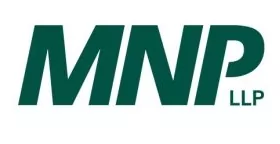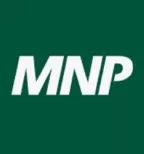Recently the Canada Revenue Agency (CRA) provided some written guidance on the income tax treatment for taxpayers that unknowingly make an investment in a fraudulent investment scheme, including Ponzi or Ponzi-like schemes (See CRA Technical Interpretation Document No. 2014-0531171M6 dated July 3, 2014).The rules will apply to taxpayers who had what reasonably appeared to be legitimate investments for income tax purposes. These guidelines will not apply to taxpayers who knowingly participated in a scheme for tax avoidance purposes, including the non-reporting of potential investment income.
Income Inclusion
According to the CRA guidelines, any funds received by a taxpayer that are considered returns on investment should be included in their taxable income. The fact the funds were not invested in a legitimate investment does not alter the taxable income treatment to the taxpayer. 1
Bad Debt
A taxpayer may claim a deduction for a bad debt expense, pursuant to paragraph 20(1)(p) of the Income Tax Act (ITA) to the extent the investment income purportedly earned from a scheme, that was not considered to have been received or withdrawn by the taxpayer, was previously included in the taxpayer's taxable income. The bad debt can be claimed in the year the fraud is discovered or at such earlier time the debt is established to have become bad.
Losses
The nature of any losses needs to be reviewed to determine whether the losses are a business loss or a capital loss, and if a capital loss, whether the loss is a "business investment loss."
Capital Loss – The taxpayer may be able to claim a capital loss pursuant to paragraph 39(1)(b) of the ITA to the extent they lost money on their initial investment in the scheme. A net capital loss may only be applied against a taxable capital gain. A taxpayer may carry back three years or carry forward indefinitely any net capital loss.
Business Investment Loss – A taxpayer may claim a deduction for a business investment loss that is a capital loss from a disposition of a share of a corporation that is a small business corporation (SBC) or a debt owing to the taxpayer of a Canadian Controlled Private Corporation (CCPC) that was a SBC. Therefore, a business investment loss is only available if the investment was shares or debt of a CCPC that was a SBC. In general terms, a SBC is a CCPC that meets specific criteria relating to the use of its assets. Ponzi schemes generally relate to debt, not shares. One half of a business investment loss qualifies as an allowable business investment loss (ABIL), which may be deducted against all sources of income, not just capital gains.
Recovered Amounts
Where tax deductions have been claimed and funds have subsequently been recovered by a taxpayer from an investment scheme, through a legal settlement or otherwise, the recovered amounts will be treated as taxable as a recovery of previously deducted bad debt expenses, recovery as a previously deducted capital loss or recovery as a previously deducted allowable business investment loss.
Taxpayer Relief Provisions
Where individual taxpayers have invested in fraudulent investment schemes and are seeking tax relief, there may be situations where a request for 'Taxpayer Relief' under certain provisions of the ITA may be available to adjust prior year income tax returns for missed deductions. These situations are generally dealt with by CRA on a "case-by-case" basis.
Conclusions
The CRA's guidance relating to the taxable treatment of funds received from fraudulent investment schemes can be challenged since it is not supported by recent case law. However, specific tax deductions available to taxpayers who unknowingly have made a bad investment in a so-called fraudulent investment scheme (which are similar to the income tax deductions available on making bad investments in legitimate investments) is welcome tax relief from the CRA. Despite the tax deductions that may be available, as always, investors must choose their investments wisely, as the potential tax savings from any tax deduction will only recover a portion of their actual investment losses incurred.
Footnotes
1. Note the CRA guideline for income inclusion is inconsistent with the income tax treatment decided on in a recent tax case Roskzo v. The Queen (2014 TCC 69) in which the Tax Court found "income" from a fraudulent investment "scheme" was really a return of the investor's own money and not taxable.
The content of this article is intended to provide a general guide to the subject matter. Specialist advice should be sought about your specific circumstances.

